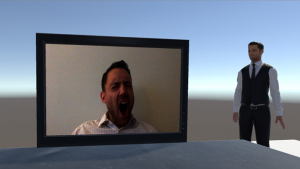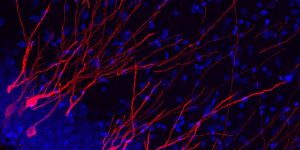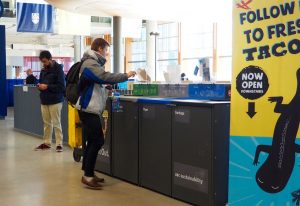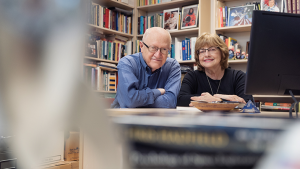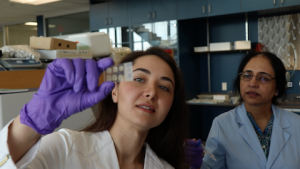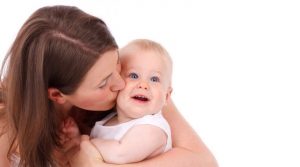People think and behave differently in virtual reality than they do in real life
New UBC Psychology research has found a yawning gap between how people respond psychologically in VR and how they respond in real life.
Have we been asking the right questions about neurogenesis?
An editorial by Dr. Jason Snyder invites researchers to consider new perspectives in how the brain changes across the lifespan
Online game trains players how to sort waste correctly
A simple online game can teach people to more accurately sort waste—with lasting results, a new UBC Psychology study has found.
At Home in Space: Drs. Phyllis Johnson and Peter Suedfeld are investigating the psychosocial effects of long-term space flight
Drs. Phyllis Johnson and Peter Suedfeld are investigating the psychosocial effects of long-term space flight.
Baby’s best friend? UBC Psychology researchers seek families for study on dogs and infants
The Infant Studies Centre is seeking families with infants to take part in new research examining how dogs contribute to enhanced language abilities in very young children.
Motivation, decision-making, and telling our stories anyway
Leili Mortazavi had hoped to present her research at the annual meeting of the Society for Neuroscience (SfN) in November 2018, but due to a travel restriction was not able to join her colleagues in the United States to present her work.
New research: Casino lights and sounds encourage risky decision-making
The blinking lights and exciting jingles in casinos may encourage risky decision-making and potentially promote problem gambling behaviour, suggests new research from UBC Psychology.
Dr. Toni Schmader is working towards equality for everyone
Ever since she was a teenager, Dr. Toni Schmader has been trying to figure out why we treat each other as ‘us’ and ‘them’. As a professor and Canada Research Chair in Social Psychology, she’s been diligently working to determine how educating people about their implicit biases can make a difference in changing the culture of an organization.
New research: Previous motherhood could affect hormone therapy’s ability to prevent memory loss
Researchers have established that the foggy feeling and forgetfulness that many new mothers report during and after pregnancy—known as “mom brain”— is real. But new findings from Dr. Liisa Galea, a professor in UBC’s department of psychology, suggest that the effect of motherhood on the brain appears to last much longer after childbirth than previously believed.
Dr. Frances Chen’s research is featured in a Canada Foundation for Innovation campaign
Dr. Frances Chen uses sophisticated research tools to determine how our social lives — online and otherwise — affect how we feel and behave.
